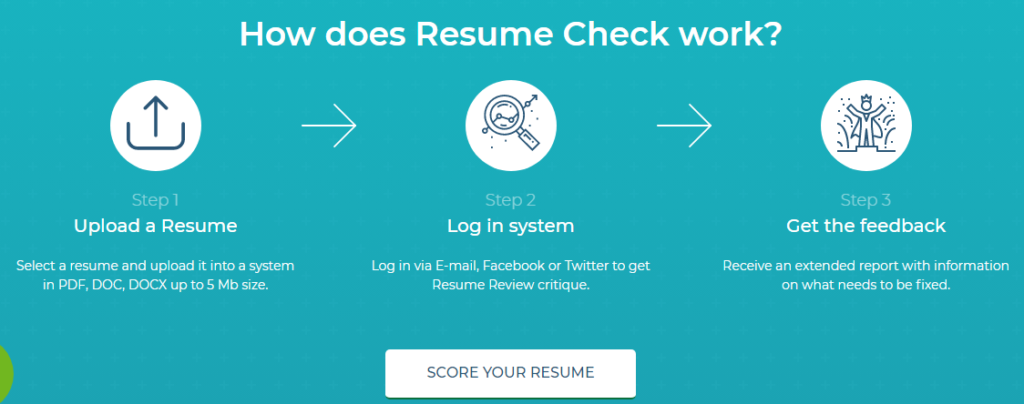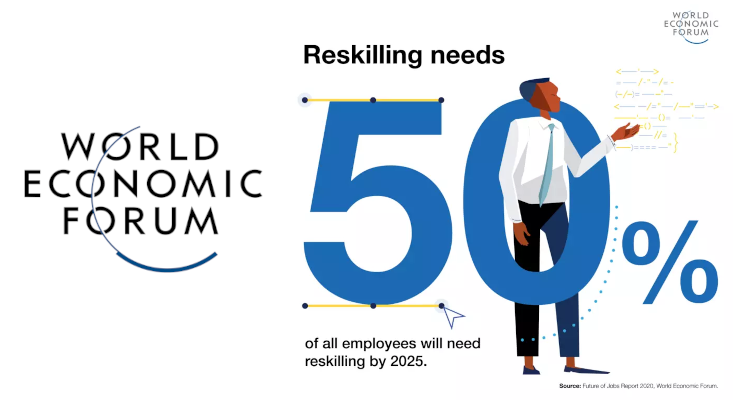Struggling post-college? You can turn job search anxiety into success. Find out how to navigate uncertainty, build resilience, and land yourself a good college job.
“It’s like I’m sending my resume into a black hole,” Isha told me over a call, her voice tinged with disappointment, hoping for a response for her good college job.
Isha graduated from a well-known university with a degree in business administration. She felt extremely optimistic about her future.
But her job search quickly became a series of frustrating dead ends. Her applications received countless “we’ll be in touch” responses.
The more she applied, the more uncertain she felt about her career path. Every passing day deepened her anxiety and she wondered if she’d ever find a job in her field.

It made me wonder, why would a graduate from a top college struggle to find a job? What’s going on?
So, I did some deep diving to understand why this happens. I wrote down everything I researched in the hopes that it helps you feel a little more at ease. Ready? Here’s what I learned.
Content Overview
- Understanding the Job Market Situation
- Key Factors Behind a Tough Job Market Scenario
- Future-Proofing Your Career: Preparing for a Changing Job Market
- 1) Embrace Technology and Digital Skills
- 2) Leverage Your Networks for Job Search Success
- 3) Sharpen Your Soft Skills
- 4) Craft Tailored Resumes and Cover Letters
- 5) Stay Current with Industry Trends
- 6) Follow Up to Make an Impression
- 7) Emphasize Practical Experience in College
- 8) Share Your Job Search with Your Network
- 9) Embrace a Continuous Learning Approach
- 10) Build Cross-Cultural Skills
- Common Queries (FAQs)
- Editor's Note
Understanding the Job Market Situation
Graduating these days is like starting at a lower rung. Even if you land a job, your progress and promotions will be slower, than if you’d entered the market in a stable economy world over. It creates a lasting career disadvantage.

The job market is evolving rapidly due to technology, automation, AI, and robotics. These advances are reshaping industries and redefining the skills needed to succeed.
According to McKinsey (check report here), by 2030, 75 million to 375 million workers (3 to 14 percent of the global workforce) worldwide may need to change jobs or learn new skills to adapt to automation’s effects.
You might believe it will only affect the technology sector, but no, nobody will be spared. The impact will ripple through all sectors and industries.

Economic downturns and market fluctuations increase job search uncertainty. Companies slow hiring or lay off workers, leaving many graduates unsure about their career paths. Navigating these changes requires resilience and ongoing learning, but you’re not alone in this journey.
Key Factors Behind a Tough Job Market Scenario
| Reason | Description |
|---|---|
| Automation, AI, and Robotics | Technology replacing or altering traditional jobs |
| Changing Job Market | Rapid shifts in job requirements and industry focus |
| Recession | Economic downturns that reduce job opportunities |
| Industry-Specific Financial Crises | Financial difficulties affecting individual companies |
| Structural Issues in Organizations | Internal problems affecting business operations |
| Mismatches in Job Openings and Needed Skill Level | Gaps between job requirements and available skills |
| Education Culture Challenge | The traditional focus on academic excellence, degrees, and rote learning sometimes leads to a mismatch, especially in some countries across the globe. |
We’ve just explored the key issues that recent college graduates face during their job search.
Now, let’s get real and see what solutions we can come up with to fix these issues?
Future-Proofing Your Career: Preparing for a Changing Job Market
1) Embrace Technology and Digital Skills
If you want to stay ahead, you need to embrace technology and digital skills. Consider AI, robotics, data analysis, cybersecurity, and software development. Take online courses (Check our review of LinkedIn Learning) or earn specialized degrees to upskill or reskill.
The right tech skills can transform your career trajectory. This doesn’t mean abandoning your core expertise—it just means embracing technology, no matter your field.

2) Leverage Your Networks for Job Search Success
Invest 80% of your job search time connecting with people, and 20% researching and applying online. Create a list of top “target employers,” prioritized by interest.
Tap into alumni groups, professional associations, and community organizations to broaden your connections. Attend industry events and join professional associations. Networking can be intimidating, but it’s key to landing the right job.
3) Sharpen Your Soft Skills
Prioritize communication, critical thinking, adaptability, teamwork, and problem-solving. Engage in extracurricular activities and assume leadership roles. These soft skills are vital for success in any career. This almost seems preachy but I can not emphasize enough the importance of Soft Skill in your career growth.
4) Craft Tailored Resumes and Cover Letters
Read job descriptions carefully to align your resume and cover letter with employer requirements. Avoid generic resumes; customize each one. Use tools like “SkillRoads” to match your resume with job postings and get feedback.

Tell your professional journey by emphasizing your achievements. Provide concrete examples to illustrate your impact. Create three to six stories that showcase your leadership, creativity, or problem-solving abilities. Maintain a log to track your successes for future use in resumes and interviews. This approach will help you distinguish yourself in your job search.
5) Stay Current with Industry Trends
Stay informed about industry trends by following newsletters, blogs, and professional networks. LinkedIn and similar platforms offer excellent opportunities for networking and mentorship, essential for securing a good college job. Keep an eye on industry developments to stay ahead in your field and build valuable connections. This proactive approach will give you an edge in today’s competitive job market.
6) Follow Up to Make an Impression
Stand out in your job search by following up with recruiters. If you’ve applied to several positions, send a brief message to express your interest and ask about next steps. Don’t be pushy or intrusive, just a polite simple question asking for an update is all that is needed.
Consistent follow-up can set you apart from other candidates.

7) Emphasize Practical Experience in College
Focus on gaining practical skills and industry exposure during college. Engage in internships, practical projects, and hands-on training to bridge the gap between theory and practice, setting you up for success in securing a good college job.
8) Share Your Job Search with Your Network
Don’t keep your job search a secret. Let everyone in your network know, you’re seeking new opportunities to build a support team. Before spreading the word, ensure your resume and LinkedIn profile are updated and professional. By having a team of supporters, you’ll increase your chances of finding valuable leads and job opportunities. Networking can be your best asset in a successful job search.
Opportunities can pop up from unexpected places, so don’t hesitate to put yourself out there. You never know who might have just the right lead for you.
9) Embrace a Continuous Learning Approach
Adopt a growth mindset and commit to continuous learning. According to the World Economic Forum, half of all employees will need reskilling by 2025 (check report here). Stay ahead by acquiring new skills and adapting to changing job market demands. It’s not just about formal education—be curious and keep learning, and you’ll be ready for whatever comes your way. Keep going; you’ve got this!

10) Build Cross-Cultural Skills
Work on gaining experience with people from diverse backgrounds. Participate in multicultural projects, or think about studying or working abroad. These experiences can broaden your perspective and make you a more adaptable team player. It’s like adding a new dimension to your skill set—you’ll be glad you did. Trust me, a little cultural fluency goes a long way in this super connected world.

Remember Isha? I mentioned her at the beginning of this article. She’s a recent college graduate who applied to several jobs with enthusiasm. Despite her high grades and internships, she struggled to get callbacks. When she finally landed an interview, the hiring manager questioned her “real-world” experience, even though her internships and coursework were solid. The generational gap was clear—the manager seemed more at ease with older candidates. Isha realized that finding a job matching her education would be tougher than expected, encountering prejudice and misunderstanding.
However, this story underscores the point this article is trying to make that perseverance and adaptability can eventually lead to success. Keep pushing forward—your time is here.
Common Queries (FAQs)
Why is it so challenging for new graduates to find a job in today’s job market?
The job market is undergoing significant changes due to technology, automation, AI, and robotics, which affect the types of skills in demand. Economic downturns, market fluctuations, and industry-specific crises also contribute to the difficulty. Additionally, structural issues in organizations and mismatches in required skills can create additional barriers.
What are some key factors behind a tough job market scenario for graduates?
Key factors include automation and robotics replacing traditional jobs, rapid changes in job requirements, economic recessions reducing job opportunities, financial crises in specific industries or companies, and gaps between job openings and the skills that new graduates possess. The traditional focus on academic excellence without practical experience can also contribute to the challenge.
What can new graduates do to prepare for a changing job market?
Graduates can embrace technology and digital skills, leverage their networks, develop soft skills, craft tailored resumes and cover letters, stay current with industry trends, follow up after job applications, emphasize practical experience, and maintain a continuous learning approach. Building cross-cultural skills and sharing your job search with your network can also be beneficial.
How can new graduates improve their chances of finding a job?
Improving your chances involves networking, gaining practical experience through internships or projects, enhancing soft skills like communication and teamwork, staying updated on industry trends, and customizing resumes and cover letters for each job application. Consistent follow-up and embracing a growth mindset can also make a significant difference.
How can technology and digital skills help in a job search?
Technology and digital skills are increasingly essential in many industries. Acquiring skills in AI, robotics, data analysis, cybersecurity, or software development can open up new career opportunities. Taking online courses, earning specialized degrees, or participating in relevant training can help you stay ahead in a competitive job market.
What role does networking play in a successful job search?
Networking is crucial in a successful job search. It allows you to connect with professionals in your industry, discover job opportunities, gain insights into company cultures, and receive mentorship. Networking can lead to job referrals and give you a competitive edge. Invest 80% of your job search time connecting with people through alumni groups, professional associations, industry events, and community organizations.
How important are soft skills in today’s job market?
Soft skills like communication, critical thinking, adaptability, teamwork, and problem-solving are essential in today’s job market. Employers value these skills because they contribute to a positive work environment and successful project outcomes. Developing these skills can significantly enhance your career prospects.
How can new graduates ensure their resumes and cover letters stand out?
To make your resume and cover letter stand out, customize them to align with the job description. Avoid generic content and highlight relevant experiences, achievements, and skills. Use concrete examples to illustrate your impact, and consider using tools that provide feedback and help align your application with job postings. Tailoring your resume and cover letter for each application can increase your chances of getting noticed.
What steps can new graduates take to stay updated with industry trends?
Staying updated with industry trends involves following industry-related newsletters, blogs, professional networks, and platforms like LinkedIn. Engage in continuous learning, attend industry events, and participate in professional associations. This proactive approach keeps you informed about emerging technologies, new job requirements, and other significant developments in your field.
How can new graduates prepare for interviews and make a strong impression?
To prepare for interviews, research the company and the role thoroughly. Develop three to six stories that demonstrate your achievements, leadership, creativity, and problem-solving skills. Practice your responses to common interview questions and be ready to discuss your experiences in detail. After the interview, follow up with a polite message to express your gratitude and interest in the position.
What strategies can help new graduates overcome job search anxiety and uncertainty?
Overcoming job search anxiety and uncertainty requires resilience and a continuous learning mindset. Maintain a positive outlook, stay connected with your support network, and set achievable goals for your job search. Embrace technology and digital skills to broaden your career options, and remember that persistence often leads to success. Engaging in extracurricular activities and taking on leadership roles can also help build your confidence and practical experience.
Editor’s Note
As you embark on this journey, remember that every challenge is an opportunity for growth. Stay focused on your goals, but be open to new possibilities. If you’re facing setbacks, don’t be discouraged. Each experience, even the difficult ones, contributes to your personal and professional development. It’s normal to feel anxious about the future, but you’re not alone.
Many others are facing the same challenges, and there’s a community of support to help you along the way. Keep a positive outlook, stay adaptable, and embrace the journey. The right opportunity is out there, waiting for you. Keep pushing forward, and remember that your skills and resilience will lead you to success. You’ve got this!!!
If you enjoyed this article, you might want to explore our detailed review of ‘Fiverr’ and ‘LinkedIn Learning’



